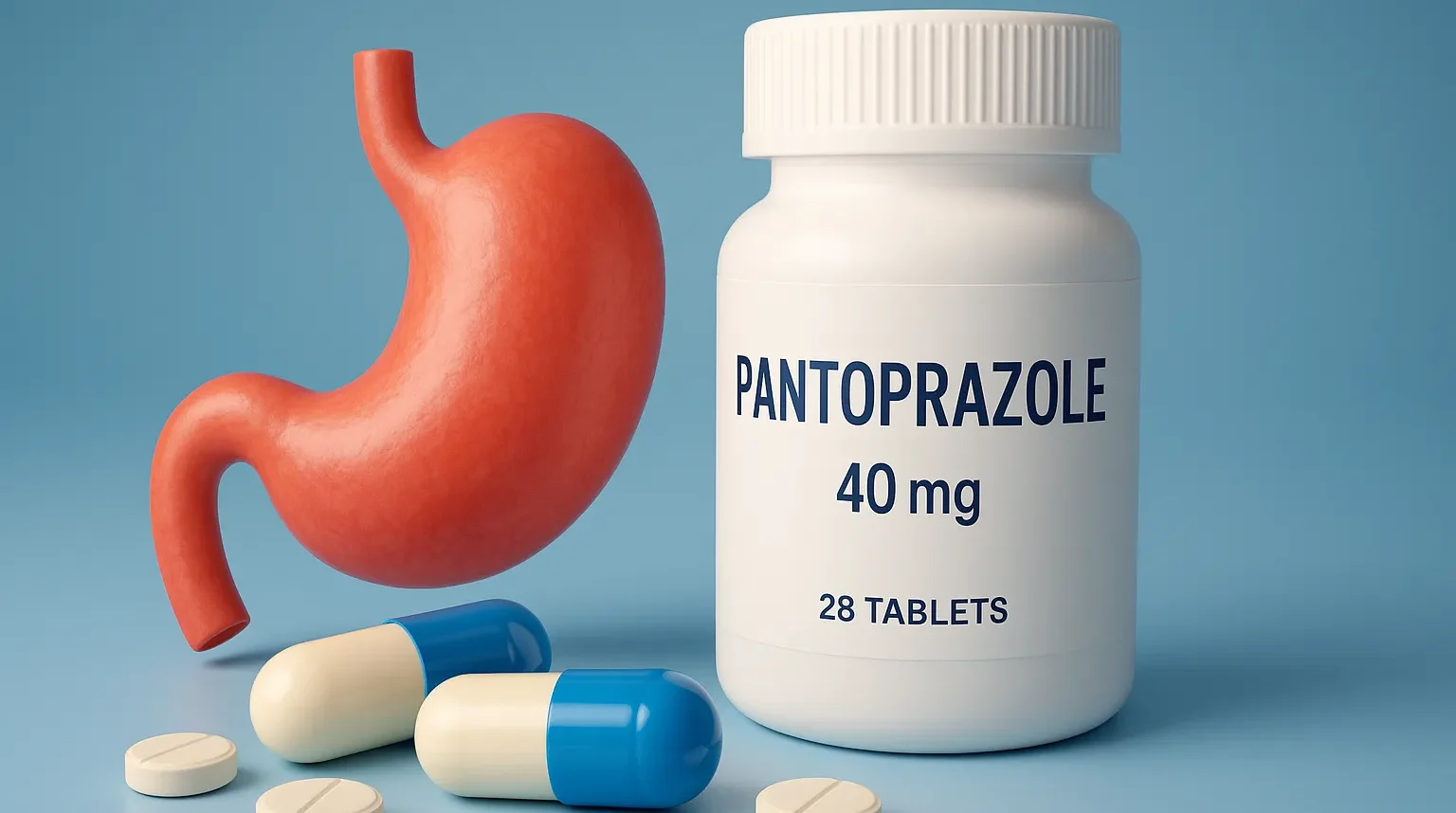Pantoprazole, a powerful gastric proton pump inhibitor, helps treat GERD, erosive esophagitis, and stomach ulcers by reducing acid production.
Structure of Pantoprazole
- It is a benzimidazole derivative characterized by a pyridine ring fused to a benzimidazole structure, containing a sulfoxide group and a pyridine-containing side chain.
- Chemical Formula: C₁₈H₁₉N₃O₄S

Mode of Action
- Pantoprazole acts as a proton pump inhibitor by selectively and irreversibly binding to the H⁺/K⁺-ATPase enzyme in gastric parietal cells.
- This binding blocks gastric acid secretion, leading to decreased stomach acidity.
Uses
- Peptic Ulcers: Promotes healing by reducing acid secretion.
- GERD: Manages symptoms by decreasing gastric acidity.
- Zollinger-Ellison Syndrome: Controls excessive production of stomach acid.
- Erosive Esophagitis: Facilitates healing of esophageal lesions.
- Maintenance Therapy: Prevents recurrence of ulcer and GERD symptoms.

